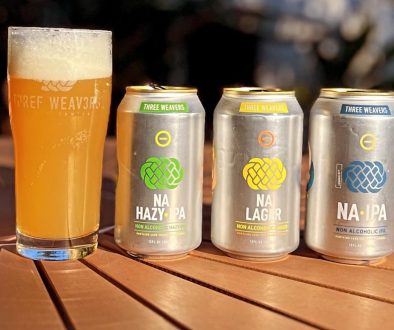There’s More Than One Way For a Craft Brewery to “Sell Out”
There has been a lot of sellouts, buyouts, mergers and acquisitions in craft beer industry over the past few months, and don’t expect the shakeups to slow down anytime soon. The most passionate beer lovers have strong reactions to each new announcement, but the strongest reactions have typically happened, understandably, when the multinational brewing companies acquire a beloved craft brand. Anheuser Busch’s purchase of Goose Island started the trend, and their shopping spree hit the Los Angeles region at the end of 2015 when they acquired Golden Road Brewing.
Many craft beer devotees and insiders knowingly shook their heads then swore off the sell-out brand as a traitor to the cause, but these same drinkers have seemed to turn a blind eye towards the more common occurrence of a craft brand selling all, or a portion of, their business to a private equity firm. The frequency of these deals is on the rise, but even though they don’t repulse the craft beer faithful the way AB absorbing another favorite local brand does, they are just as dangerous to the industry’s continued growth.

Tara Nurin, who covers the beer buisness for Forbes.com wrote a great breakdown of how private equity money is impacting the craft beer buisness now and how much more impact it will have in the not-too-distant future. In that post, Boston Beer’s founder Jim Koch sums up the biggest threat that these funds represent. “Funds have finite lives,” he says. “…when those fund lines get to the end [fund managers] have got to sell those assets.”
Private equity money comes from investors and companies that pool capital and invest in businesses that are not publicly traded. Venture capitalists are a well-known form of private equity investors that focus on start-up businesses, and funds that focus on established businesses are often called “buyout firms.” Private equity (hereafter, PE) funds try to find a mature business to invest in, one that maybe just needs a little push to get to the next level of profitability. These investors purchase all or a portion of the company and use their business acumen and extensive resources to help the purchased company grow and become more profitable. Then, usually, the fund matures and sells-off its assets to provide a payout for all the individual investors; there’s an endgame built into the funds.
“What does this mean for the industry?” Nurin asks in the Forbes post. “Of the more than half-dozen high-profile equity deals that have taken place recently, most of the PE firms will look to exit three to five years afterward, launching a rash of the resales and public offerings that the craft community so derides.”
When AB buys a favorite craft beer brand, some beer-fans cry “sell out!” and swear to never drink the turncoat brand again. When a PE fund buys all or a portion of a craft brewery, many of these same beer-lovers say: “at least AB didn’t buy them,” while raising a toast of congratulations to the savvy beer entrepreneurs. But the reality is many of these PE funds care less about the end product than AB would. They don’t see a world class brewery making carefully crafted artisanal beverages, they see a well performing company in a growth industry that they can turn into a nice payout.
Private equity investments are not new in the craft beer industry, there’s more money being thrown at the industry than ever before. Often when a craft brewery sells out to the multinational corporations they are taking less money than a PE fund was offering, but they feel like the big beer breweries are a better choice for their brands. In his first interview about the sale of Golden Road Brewing to AB InBev, Tony Yanow said “In the months before the sale we [the GRB executive team] got approached by many private equity firms. I averaged two or three [offers] a week. We turned them down because we didn’t want to sell to PE because those guys aren’t in it to run a brewery long term. They are going to come in and add resources so that we can grow so that we can create more value so that we can sell again.”
Similar statements were made by Joe Bisacca, founder and CEO of Seattle’s Elysian Brewing, in a Seattle Met story about the brewery’s sale to AB InBev in 2015: “They’ll run you 100 miles per hour, and then they’ll dump you.” The Elysian executive team decided that AB would be a better shepherd for the brand’s next steps.
The prize that the fund manager’s eyes are on is not world-class beer, it’s the brewery’s sale price in 5 or 10 years, and there is no telling who will buy the craft brands in the PE portfolios. Maybe it’s AB afterall. Maybe the fund takes the company public with an IPO, though this is costly and risky. Maybe the fund sells the company back to the employees or the brewery is able to repurchase the stake that was sold off initially (as Dogfish Head Sam Calagione hopes to do with the 15% of Dogfish Head that was sold to a PE firm in 2015). There is a level of uncertainty inherent with PE investments, and the more breweries that make the PE deals the more uncertainly gets loaded into the craft beer industry.
With the craft beer industry performing as well as it is, and growing at a steady and impressive rate, these type of transactions between craft brewing companies on the verge of their next step forward (increasing production, diversifying products, expanding distributions, etc.) and investors from outside the industry will only become more common. The line between craft beer and macro beer has blurred more with each sale, and the decision on where to spend your beer money is more important — and far less clear-cut — than ever.
John Verive is Southern California native and freelance writer dedicated to growing the craft beer scene in Los Angeles. He’s is a Certified Cicerone®, the founder of Beer of Tomorrow (www.BeerofTomorrow.com), and he covers the beer-beat for the Los Angeles Times. John loves lagers, session beers, finding perfect pairings, and telling the stories of the people behind the pints; you can follow him on Twitter and Instagram at @octopushat and @beeroftomorrow.




April 14, 2016 @ 5:04 pm
Reply to Beer Up. Their vested interest is NOT in quality of the product at all. Their sole interest is pushing more beer, to make up for shrinking sales and lost market share in their flagship “premium” beers. Since the have no credibility for selling a premium product, they have to buy the goodwill of others, but since their motivation is only revenue, quality will always lose out to sales. Let’s face it if they believed in good beer they wouldn’t put down craft in their ads and they would have started quality production in the 1990s rather than using their distribution power to squash the first flowering of craft in the mid-90s. I read the distribution agreement when they made that decision, and I have a friend that lost his brewery because of that decision.
April 14, 2016 @ 4:52 pm
I am one who buys nothing that AB owns or acquires, or dreams up (and hides their ownership). We can’t encourage those that will (sooner or later) water it down and those that have and will use their distribution power to eliminate the competition. Their real danger to the industry is their power in distribution. PE firms aren’t a threat there.
So, long gone from my tastings are Goose Island, Elysian, Blue Point, 10 Barrel – I enjoyed all, but no more!. As to Golden Road & St Archer (Miller) they were schlock and built solely to sell-out, so good riddance.
If we want the quality and innovation of Firestone, Avery & Dogfish Head, we shouldn’t do business with company’s whose business is vaguely beer flavored kool-aid.
April 10, 2016 @ 10:06 pm
Well said. At least when AB buys a brewery, they have a long term vested interest in the quality of the asset and its underlying product